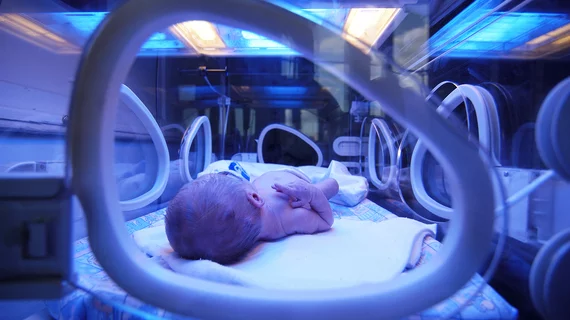Chest x-ray, other testing suggest coronavirus may pass from pregnant mom to fetus
Imaging and other tests have revealed that COVID-19 may possibly travel from pregnant mother to the fetus, according to findings published Thursday in JAMA Pediatrics.
Researchers recently performed the small cohort study on neonates treated at Wuhan Children's Hospital, in China. Out of 33 women with the disease, who gave birth in January and February, three of their babies tested positive for the virus, scientists wrote in the March 26 research letter.
“Because strict infection control and prevention procedures were implemented during the delivery, it is likely that the sources of [severe acute respiratory syndrome coronavirus 2] in the neonates’ upper respiratory tracts or anuses were maternal in origin,” concluded lead author Lingkong Zeng, MD, with the Department of Neonatology at Wuhan Children’s, and colleagues.
All three babies were born through caesarean delivery, with two arriving at 40 weeks and the third at 31 weeks. On their second day, two of the babies experienced symptoms such as lethargy, fever and vomiting, with “unremarkable” physical exams. Chest x-rays discovered pneumonia, and nasal and anal swabs tested positive for SARS-CoV-2 on Day Two and Day Four after birth. However, they came up negative on Day Six for two babies, and the same on Day Seven for the third.
Matching up with previous analyses, the symptoms were mild, with only the third baby becoming seriously ill, possibly because of prematurity, asphyxia and sepsis, rather than COVID-19. The results are preliminary and the study sample is small, but Zeng and colleagues believe they warrant clinicians’ attention.
“Vertical maternal-fetal transmission cannot be ruled out in the current cohort,” the authors concluded. “Therefore, it is crucial to screen pregnant women and implement strict infection control measures, quarantine of infected mothers, and close monitoring of neonates at risk of COVID-19.”

